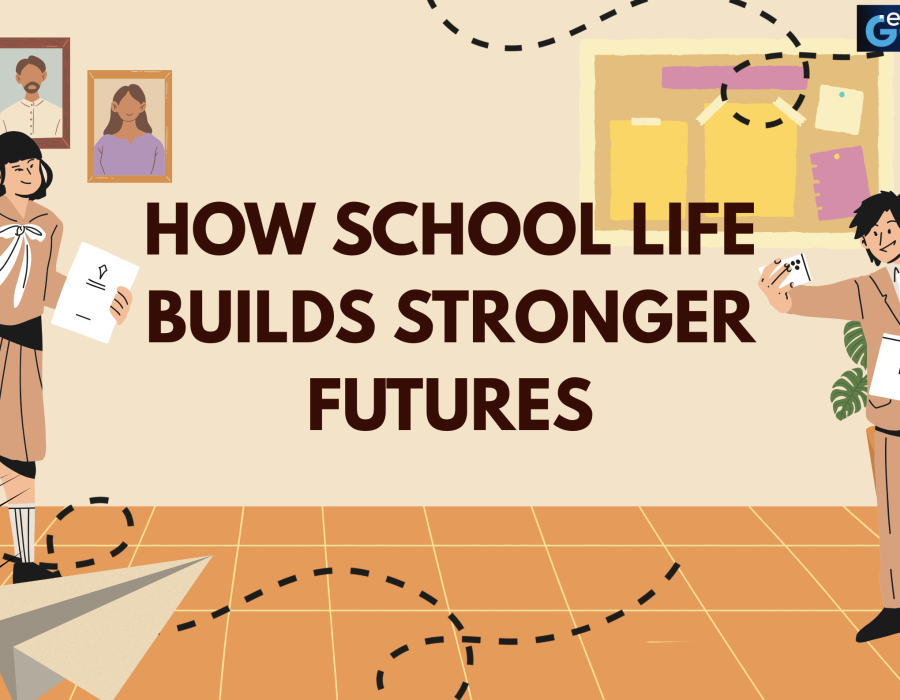Introduction: Learning Beyond the Curriculum
Every student steps into school with a backpack full of more than just books—they bring in dreams, doubts, untapped talents, and a quiet hope for direction. And in today’s dynamic world, school is no longer just a place to memorize facts and pass exams. It’s a vibrant space where young minds are shaped, challenged, and prepared for a future far beyond the classroom.
In the lush and calming environment of the hills, institutions like a CBSE Boarding school in Nanital provide more than education—they create spaces for emotional growth, self-discovery, and life preparation. With a curriculum that balances academics with co-curricular excellence, such schools nurture well-rounded individuals who are not just capable of scoring well, but are also empathetic, confident, and world-ready.
Finding Identity in a Shared Space
One of the most beautiful aspects of student life—especially in a boarding school setup—is the shared journey. When students from diverse backgrounds live, learn, and grow together, they’re exposed to multiple perspectives, cultures, and values. They learn early on that the world is not just about “me,” but about “us.”
This daily exposure teaches empathy in ways textbooks never could. When your roommate misses home, you learn to comfort. When you're faced with a group challenge, you learn to lead—and sometimes, to follow. Such lived experiences lay the groundwork for emotional intelligence, collaboration, and a strong sense of self-awareness.
Mistakes, Resilience, and Real Learning
A lot of what truly matters in life is learned not through perfect scores but through imperfect moments. Forgetting lines in a play, failing to make the football team, or getting a poor grade despite trying hard—these are moments that sting, but they also build resilience.
Boarding school environments provide a cushion for such failures, not by eliminating them, but by offering guidance and perspective. When students are encouraged to get up and try again, they begin to value growth over perfection. They realize that success is not about never falling—it's about rising every single time they do.
Teachers as Mentors, Not Just Instructors
The bond between students and teachers is a powerful aspect of boarding school life. In traditional setups, the interaction often ends with the last school bell. But in residential schools, students experience a deeper, more continuous mentorship.
A teacher is not just someone who corrects notebooks but someone who recognizes when a student is quiet, who knows when to push and when to pause. These daily, meaningful interactions help students feel seen and valued, boosting their confidence and emotional wellbeing.
Over time, this relationship often becomes one of the most cherished—teachers become role models, trusted advisors, and at times, like family.
Fostering Leadership and Initiative
When students live together, they don’t just share meals—they share responsibilities. From organizing cultural evenings to leading club activities, they are often at the helm of various initiatives. These experiences teach them more about leadership than any lecture ever could.
They learn time management, diplomacy, planning, and decision-making. They learn to navigate differences, to take ownership, and to handle consequences. Whether it’s running the school magazine or planning a community event, these opportunities shape tomorrow’s leaders—ones who understand people just as well as they understand problems.
The Power of Structure and Routine
Adolescence can be chaotic—emotions, decisions, academic pressure, identity crises. A structured boarding school environment provides a sense of order amidst that chaos. Waking up early, participating in physical activities, studying during fixed hours, and getting enough rest—all these habits, though seemingly small, lay the foundation for discipline and focus.
It’s this structure that often helps students manage stress, understand balance, and remain grounded—even as life outside constantly demands more of them.
Relationships that Last a Lifetime
One of the most underrated benefits of student life in a residential setting is the lifelong friendships it fosters. When you’ve stayed up late sharing secrets, celebrated each other’s wins, and comforted each other through setbacks, the bond you form is deep and lasting.
These friends often become your network in adult life—offering support, opportunities, and sometimes just a sense of home when you're far from it. In a world where connections are often fleeting and digital, such friendships are priceless.
Technology, Values, and Balance
In today’s tech-driven world, finding a balance between screen time and real-world interaction is critical. Forward-thinking boarding schools guide students in understanding digital etiquette, setting boundaries, and using technology wisely—not as a distraction but as a tool for growth.
They also emphasize values—kindness, gratitude, responsibility—which may seem old-fashioned but are deeply relevant. These values are not taught as subjects but are woven into the school culture, everyday interactions, and the example set by faculty.
Conclusion: Preparing for a Life, Not Just a Job
The years a student spends in school are not just about getting into college or landing a job—they’re about becoming a person who can handle life with confidence, compassion, and curiosity. A nurturing school environment plays a vital role in shaping this person.
From friendships that become family, to setbacks that build strength, and mentors who guide silently yet powerfully—these experiences help students grow into whole individuals. Schools that focus on holistic education ensure that learning doesn't stop at textbooks.





Comments